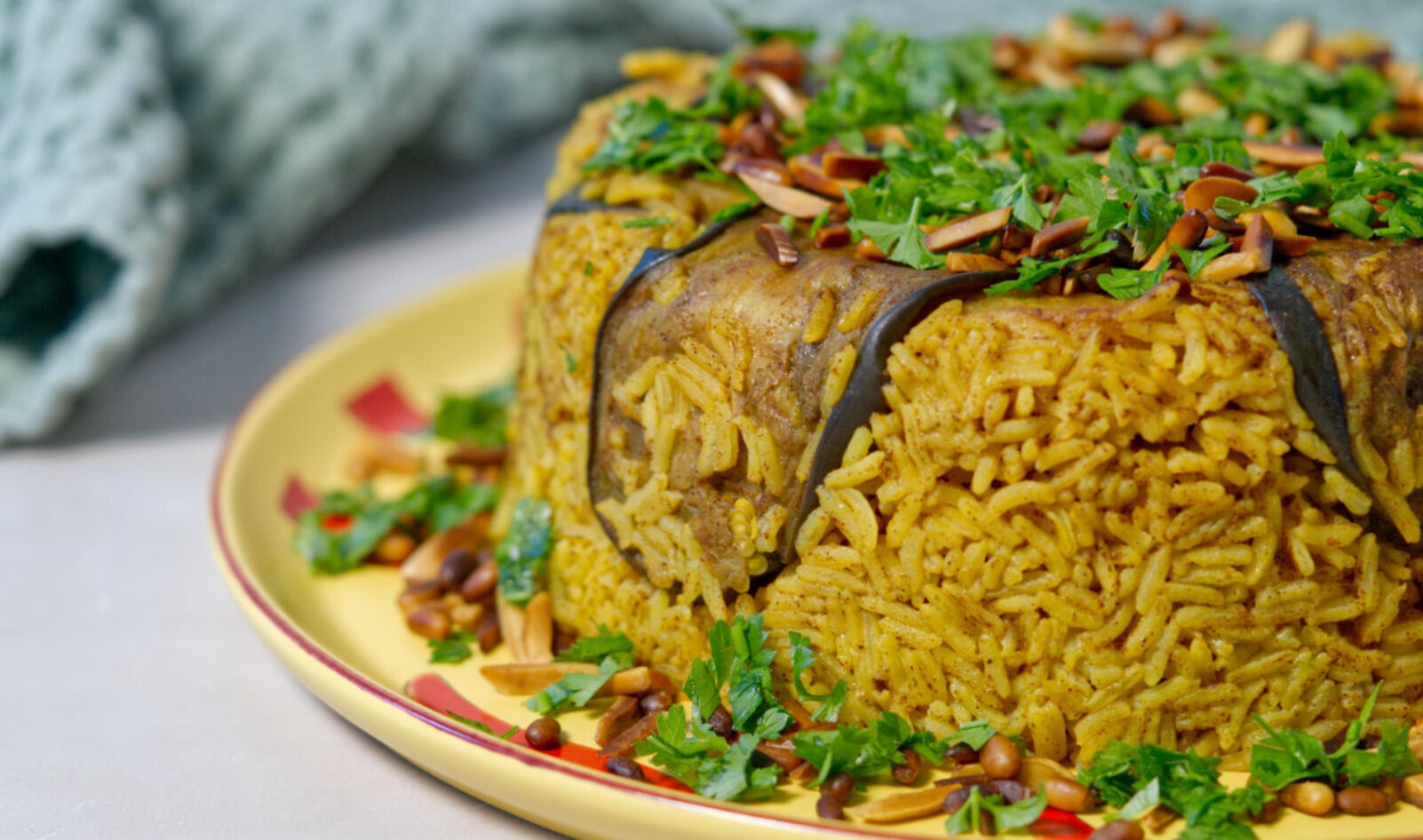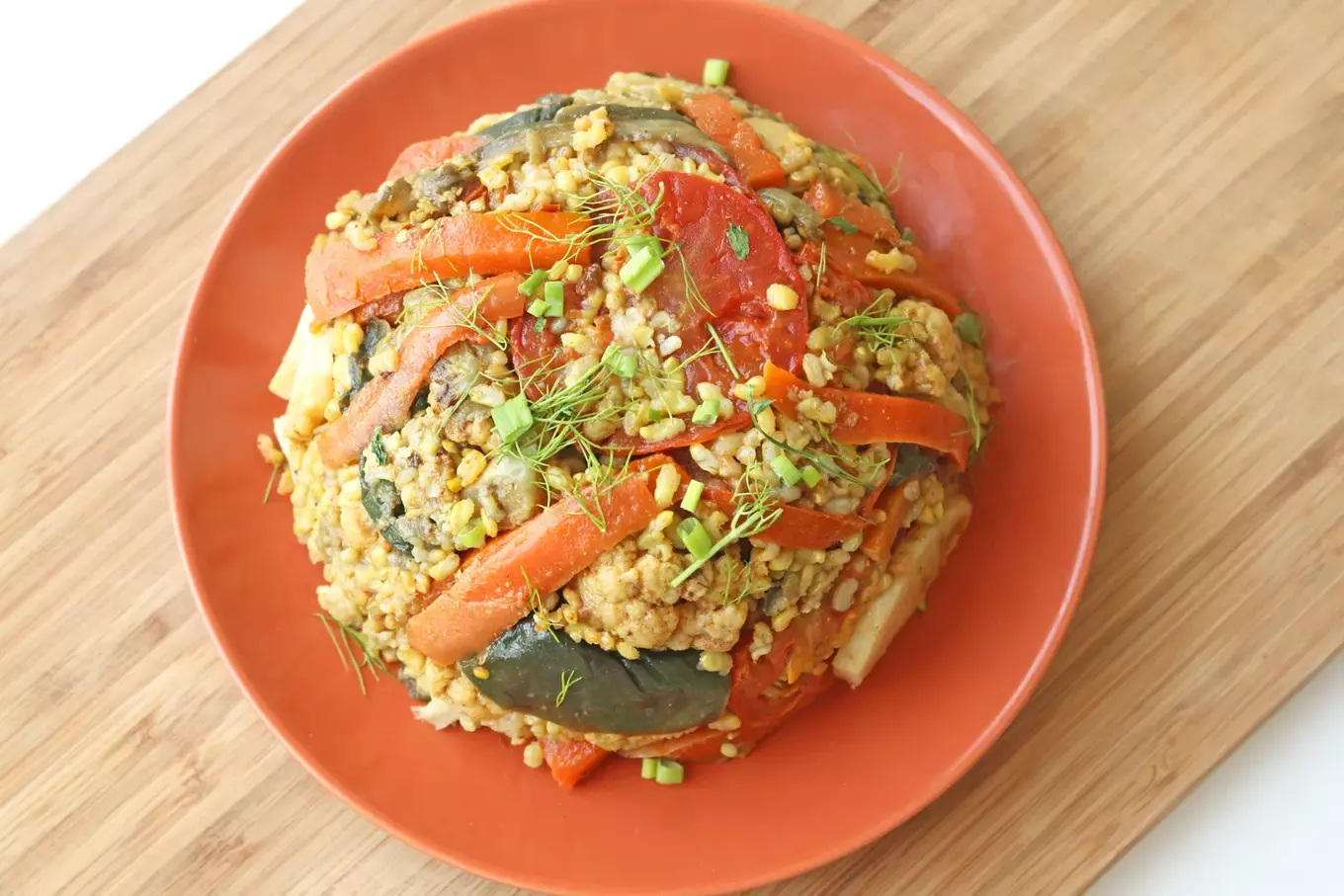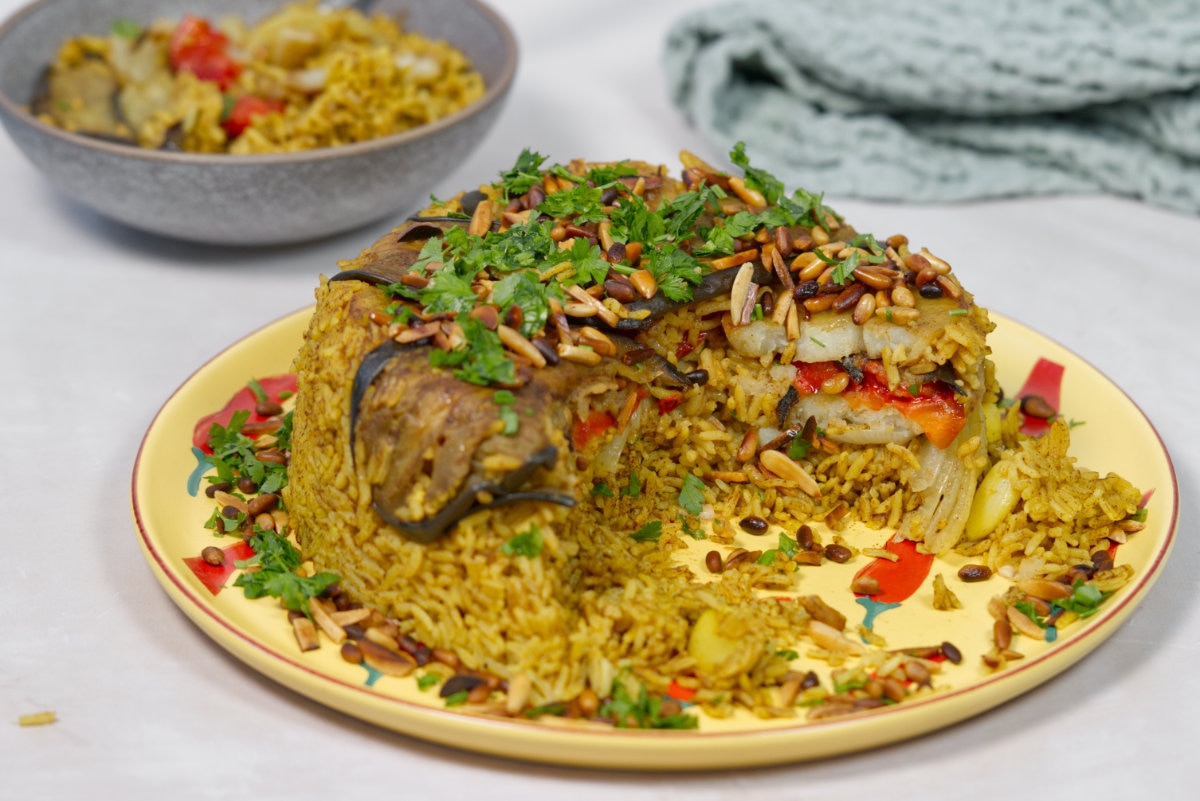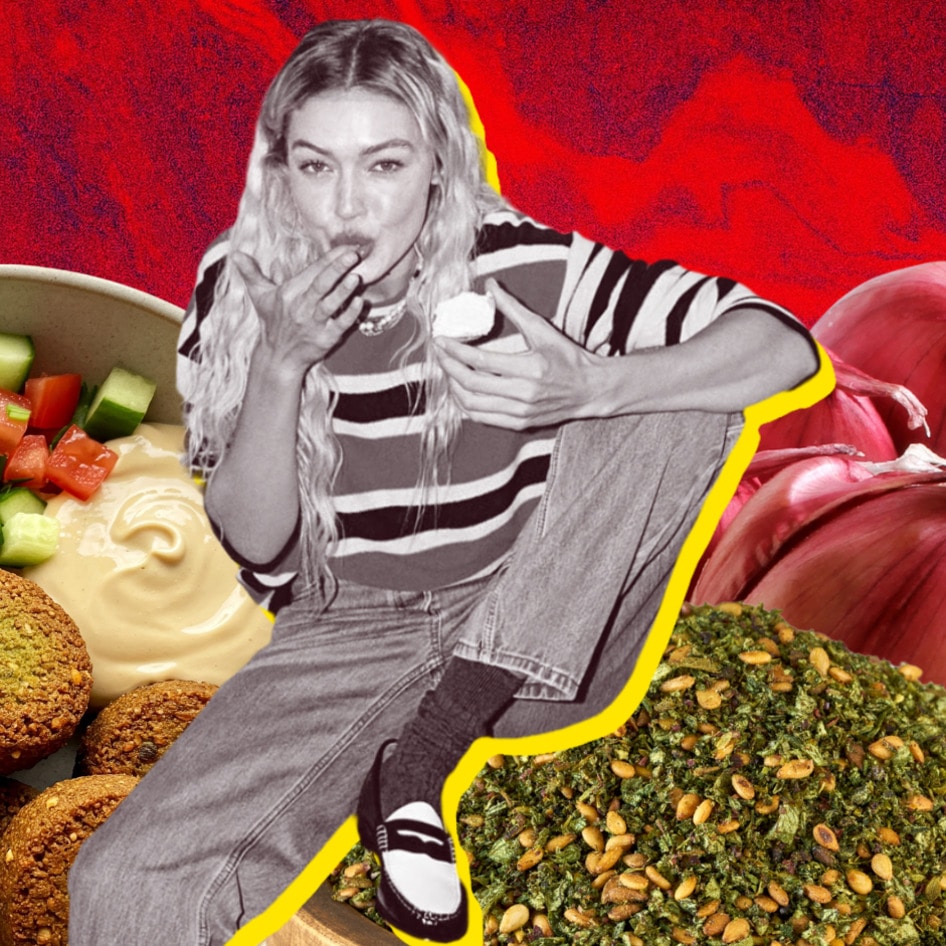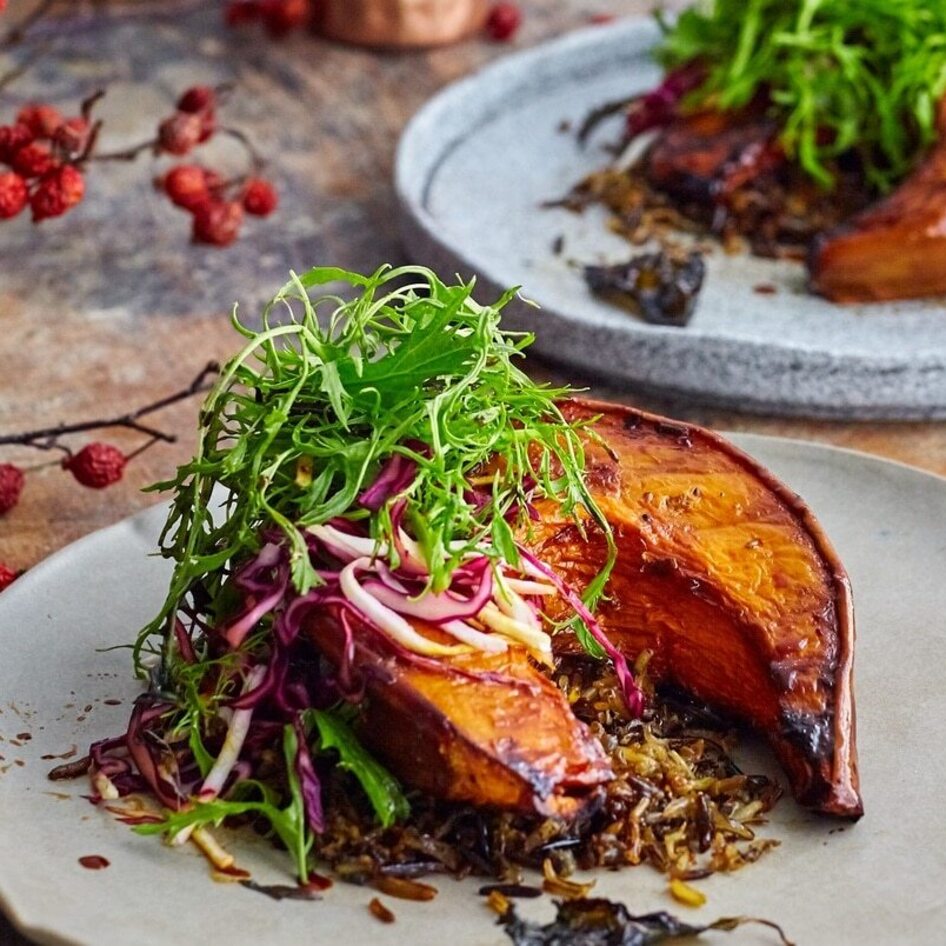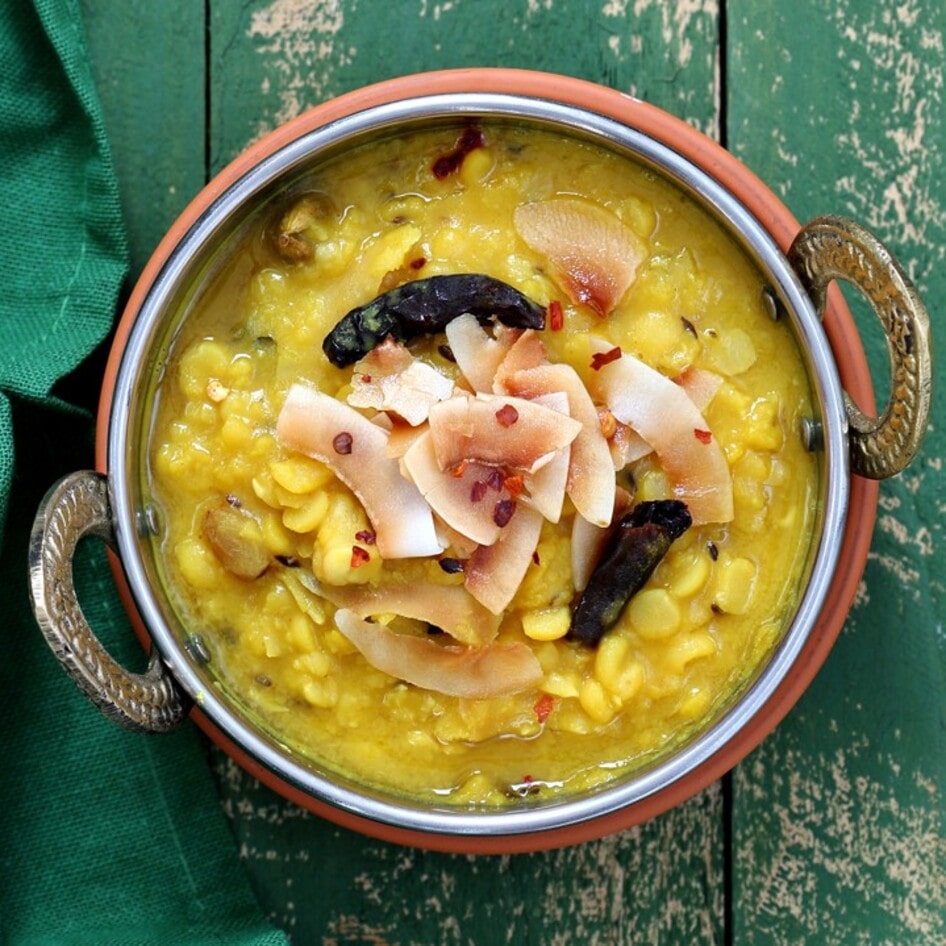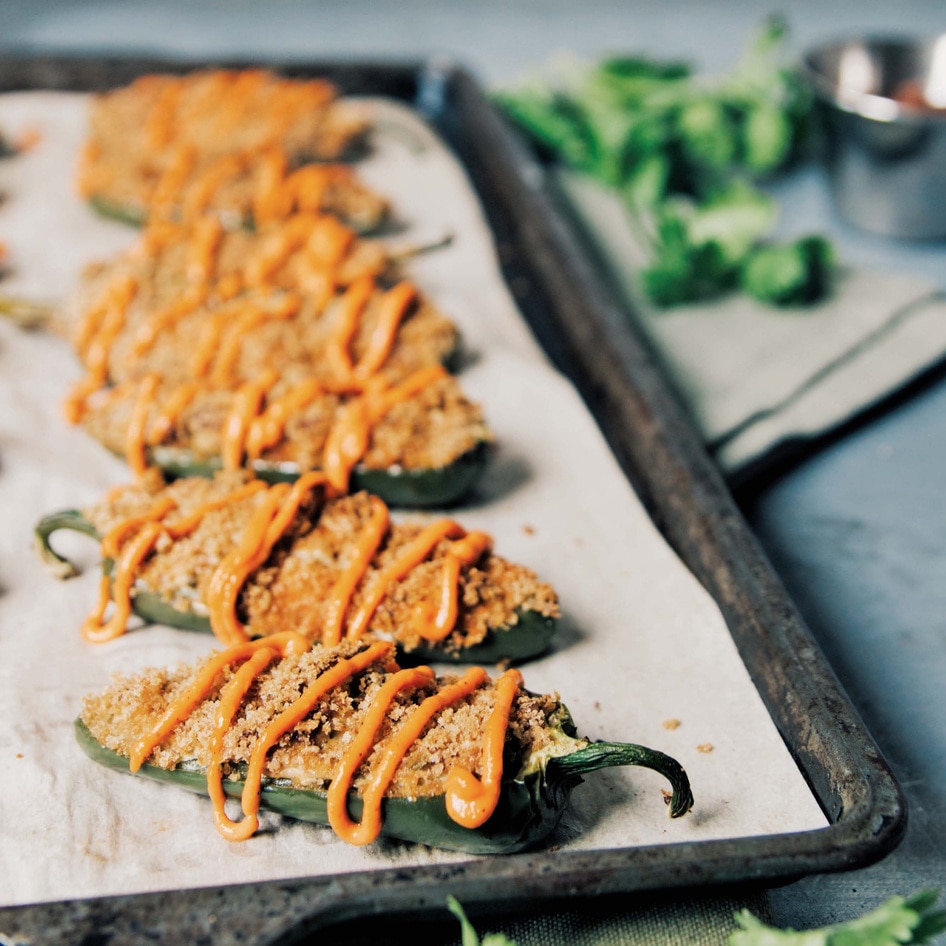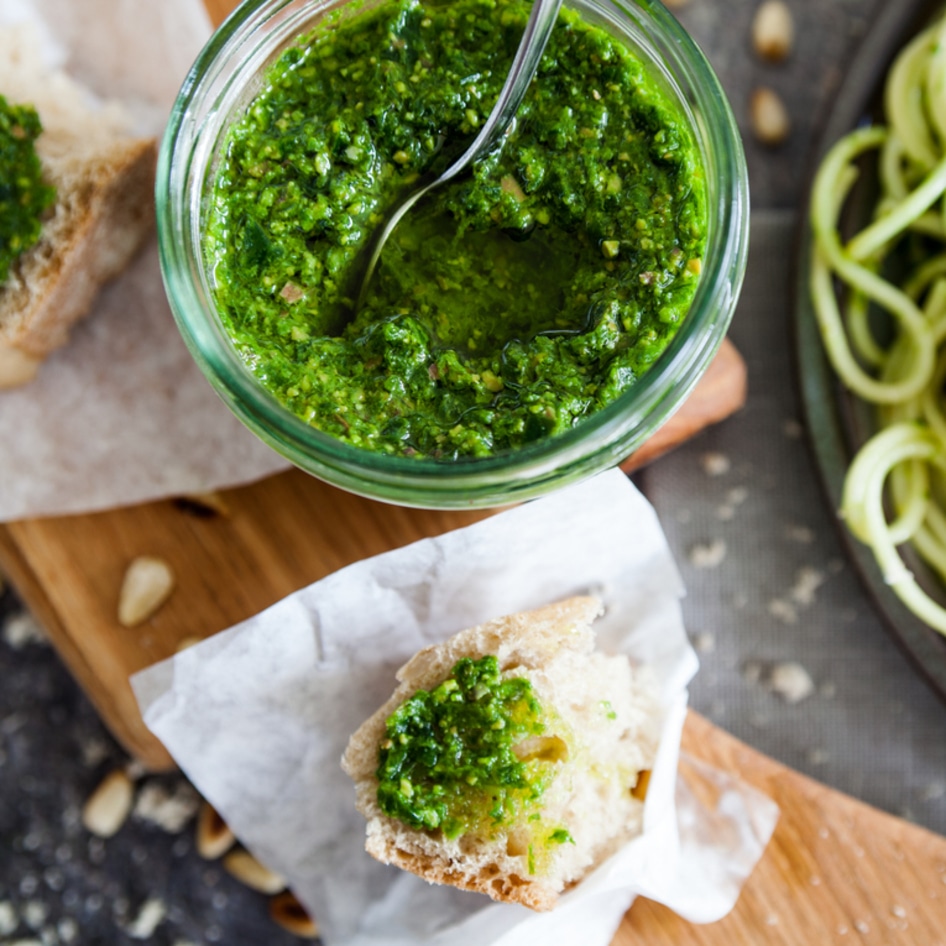When most of us think of Middle Eastern food, we think of dishes like hummus, baba ghanoush, falafel, and pita bread. But, while all of these foods are undeniably delicious, the region’s cuisine also has so much more to offer. Maqluba, for example, is an aromatic, flavor-laden Levantine dish. It’s usually made with beef, lamb, or chicken, but it’s also easy to make with ingredients like cauliflower and eggplant. Here’s everything you need to know about maqluba, from its origins to how to make a tasty vegan version from scratch.
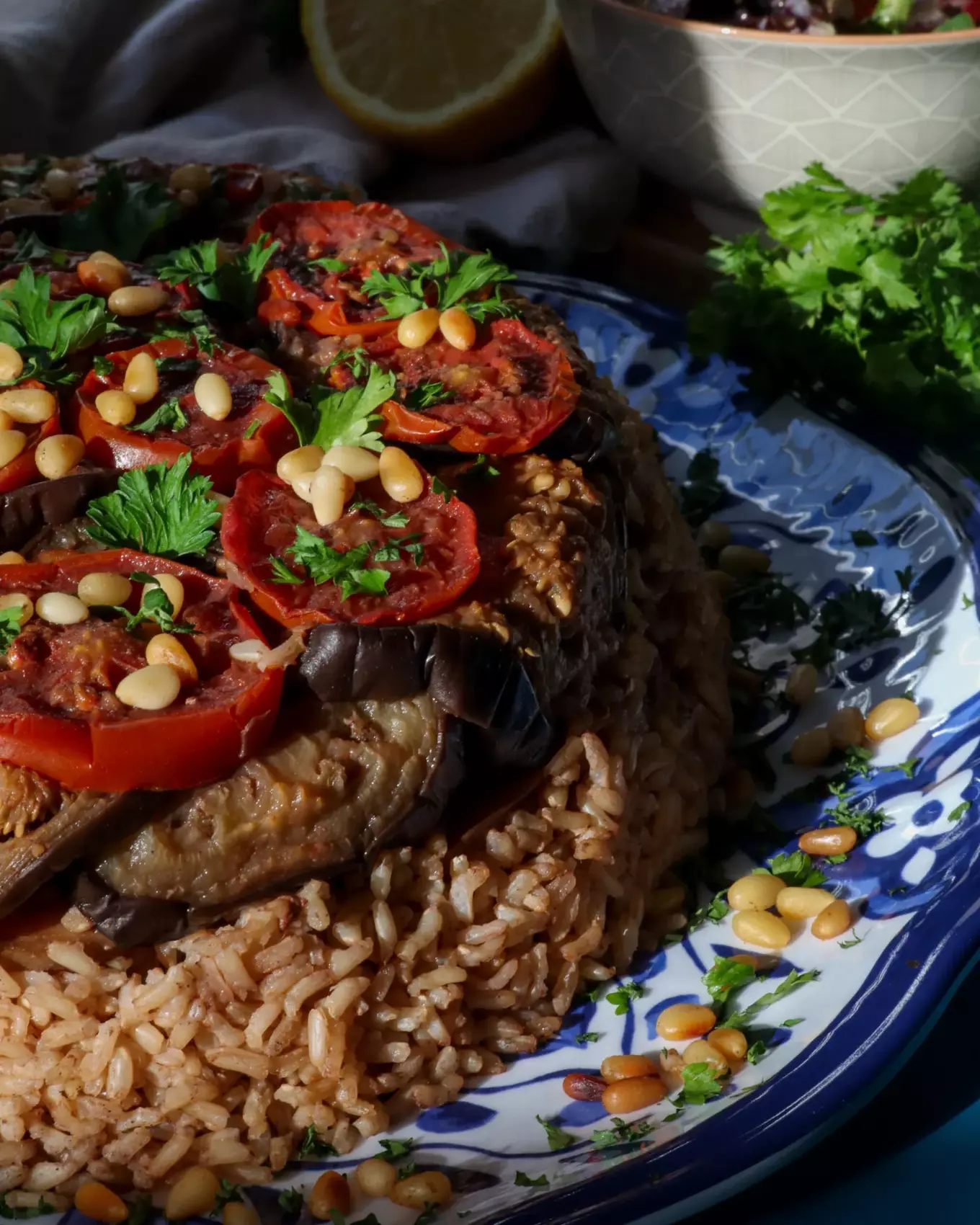 Plant Based Arab
Plant Based Arab
What is maqluba?
Maqluba, which is also spelled as “maklouba” or “maklubah,” is a traditional Middle Eastern dish, often served in honor of special occasions or during big family gatherings.
Traditionally, it’s all made in one pot, with layers of rice and meat, as well as eggplant, tomatoes, cauliflower, and plenty of spices. After cooking, the pot is flipped over so the rice is on the bottom and the meat and vegetables are on the top (in Arabic, maqluba literally translates to “upside-down!”).
Where does maqluba come from?
It’s hard to pinpoint the exact place where maqluba comes from, but it has its roots in the Middle East’s Levant region. The flavorful dish is commonly eaten in countries including Palestine, Lebanon, Jordan, and Iraq, but the recipe varies slightly from country to country, and even from family to family. However, despite regional differences, the fundamental concept of layering the ingredients and then flipping the dish upside down for serving is always the same.
How to make a vegan maqluba
Most traditional maqluba recipes involve meat of some kind (usually lamb, chicken, or beef), but you don’t have to include it. Maqluba is just as tasty when it’s made with vegetables (like eggplants, cauliflower, and tomatoes) and rice.
For example, this recipe from One Arab Vegan, which is run by food blogger Nada Elbarshoumi, walks you through how to make a delicious maqluba using only plant-based ingredients, including the usual eggplants, cauliflower, and tomatoes, but also carrots, potatoes, and plenty of spices, including smoked paprika and turmeric.
For Elbarshoumi, this dish is all about comfort. “When the going gets tough, the tough make vegan comfort food, reminiscent of simpler and happier times,” she writes in the blog post. “[This] is one of the first Middle Eastern dishes I attempted to veganize back in the early years of writing this blog. The original recipe has since been lamentably deleted, but I am proud to say that its successor is the heartiest, healthiest, and most vibrant makloubeh I have ever made.”
In this recipe from Plant Based Folk, food blogger Janelle Hama also walks you through how to make a delicious vegetable-based maqluba, using bell peppers, eggplants, garlic, potatoes, and onions. “I first came across maklouba from my son’s Palestinian grandmother,” Hama writes. “I fell in love with the whole process, preparing the sections, layering, cooking, and then the big reveal. It’s always so exciting flipping a pot of maklouba.”
But if you love to add a meaty taste and texture to your food, you can still do that using vegan ingredients. In this recipe from Plant Based Arab, for example, food blogger Waseem Hijazi shows you how to make a Palestinian-style maqluba using tomatoes, eggplants, potatoes, and a vegan meat filling.
“I grew up eating makloubeh with the meat cooked separately,” he writes. “My mom often served meat on the side (where possible), and we each would top our own dish with some meat—if we wanted to. Which makes veganizing it a little easier. All you’d need is vegan ground meat alternatives, cooked in a separate pan.”
Hijazi’s filling is made with a combination of chickpeas, walnuts, tofu, and onions. “Once smashed, crushed, and crumbled, they work so well together in absorbing all the good flavors of the maqluba,” he explains.
He recommends you serve the dish with a side salad, cucumber, or mint yogurt, before adding a drizzle of sriracha to the top.
For more plant-based stories like this, read:
JUMP TO ... Latest News | Recipes | Guides | Health | Subscribe

